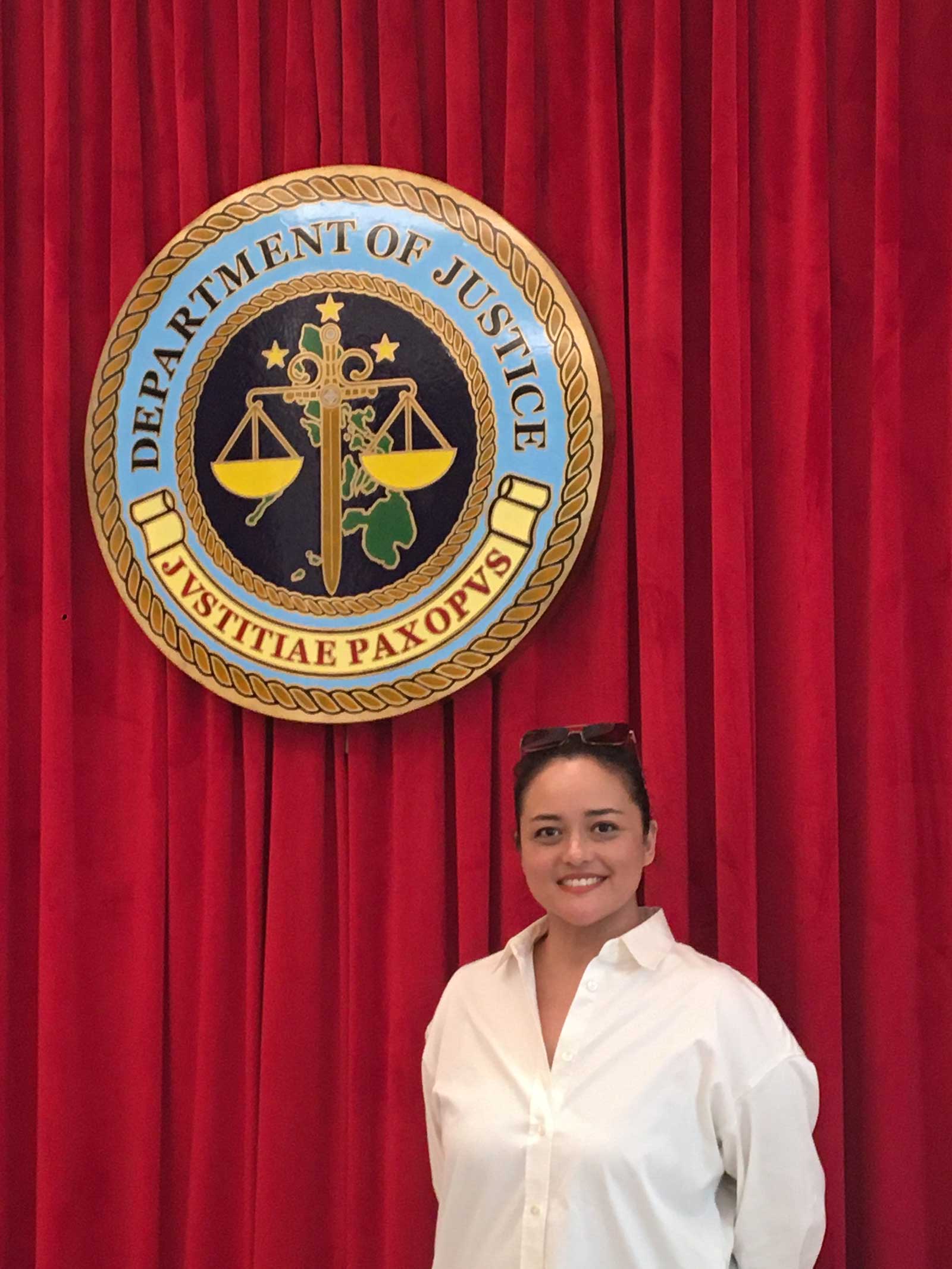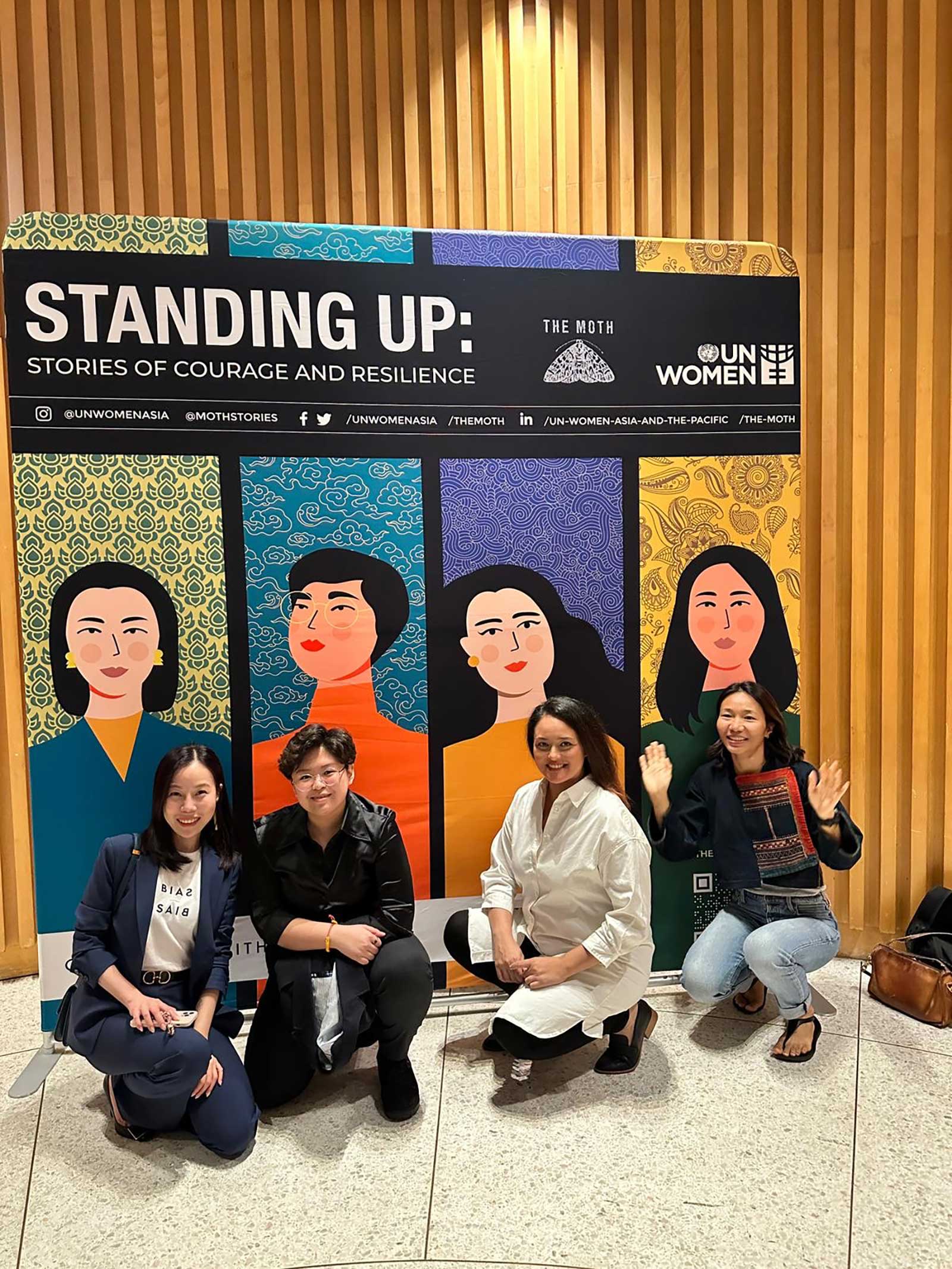Courtesy of Kat Alano
Speaking up about online gender-based violence has irrevocably changed the lives of survivors like Kat Alano. In real life and in online spaces, it’s our job to support them.
Trigger Warning: Sexual Assault and Rape. Please be aware that the following story includes mentions of sexual assault and rape, which may be particularly distressing and triggering to some readers.
The aftermath of a traumatic experience can only be characterized by unspeakable suffering. It’s the kind that doesn’t end immediately after the moment occurs: the slightest trigger, like a smell or sensation, can immediately send survivors back to their worst nightmare. Yet, people online continue to add salt to the wound, doubting the veracity of their statements and even degrading and vilifying them.
This is what happened to former VJ, TV host, and model Kat Alano. A few years ago, three women came forward on national television to say that they had been raped by the same man. Upon seeing the backlash they faced, she posted a statement in solidarity—without mentioning that she was a survivor of the same fate, at the hands of the same perpetrator. “Suddenly, all the bashing turned to me. ‘Fame whore, trying to stay relevant by talking about rape,’” she shared at a live storytelling event by UN Women Regional Office for Asia and the Pacific and The Moth, a Global Community Program that lends a platform for individuals with relevant experiences that need to be shared.
The vitriol further intensified when she finally spoke of her experience on an unedited episode of a friend’s podcast. How she was drugged and raped in her own apartment at 19, just as her stint as a noontime show host was starting to take off. How a friend who knew how it felt encouraged her to stay silent for her protection. How her career flourished internationally because she followed this advice.

“And then the messages started,” she recounted. “‘I saw your interview. What happened? What are you doing? Why are you saying this? What’s going on?” Then, it turned to bashing. ‘You’re a prostitute. You deserve to be raped.’ I even received a death threat saying it would take just one bullet to the head to kill me.” Despite paying her apartment’s rent for the next two months, she could not go home in fear she could actually die. Soon, she found herself blacklisted in the only industry she had ever known.
Kat’s story is an example of the myriad ways online violence can exacerbate existing pain and trauma, especially for women and girls. In 2021, up to 88% of women in the Asia-Pacific region had been subjected to such attacks, their perpetrators threatening, shaming, and silencing them to assert some form of power or control over their targets. Women are less likely to report sexual abuse due to looming threats of retaliation, rejection, and stigmatization.
Online gender-based violence (OGBV) comes in two categories, both of which could be devastatingly familiar to the female reader: tech-based cases are described as harmful acts that happen completely online, which are directed at an individual based on their gender and rooted in inequality. On the other hand, those that are tech-facilitated occur offline but are amplified by the use of technology, like in Kat’s case. “As time went on, I was so alone [because] nobody understood, not even my family. My friends didn’t want the scandal; they believed what they read on the news,” she recalls. “I was so depressed and in pain every day.”
Despite our efforts, even the best of us could be complicit in gender-based violence. Harmful stereotypes we may have perpetuated include telling someone to “have some balls” or “stop being such a pussy” when we need them to display courage or bravado. At the root of such acts is inequality: a product of the patriarchy that we inherit, which emboldens men at the expense of women.
Today, Kat uses her platform to help protect survivors the way she needed to be. What started with changing her Twitter name to “Breaking Free” as a sign of independence has evolved into producing, writing, and directing stories about and for women. She also founded Empower, a non-profit organisation that aims to end the stigma surrounding sexual abuse. But her work does not absolve the rest of us of our responsibility in solving this systemic problem.

Our existing judicial system fails survivors of OGBV, with its lack of survivor-centered services or legislation that holds perpetrators accountable. “Very often, people in positions of power can be patriarchal and may wind up shaming or harassing survivors,” says Kirthi Jayakumar, founder of The Gender Security Project and member of the 30 for 2030 network. “There is the added challenge of having to prove the damage caused by the incident, especially because it isn’t always physical harm with injuries, and because there aren’t always witnesses. This doesn’t include how expensive accessing legal support can be.”
Although all-encompassing change still isn’t on the horizon, we can work towards this by establishing inclusive spaces—online and offline. As we stand alongside survivors, we validate their experiences, rebuild their trust in other people, and grant them a space to move forward without judgment. Individual actions also hold power and drive change: examples of which can be reflecting on and adjusting past behaviors, supporting organizations dedicated to ending gender-based violence, and challenging traditional gender norms.
After months of shutting herself out, Kat decided to journey to the mountains. Barefaced and wrapped in layers of clothing, all she wanted was an opportunity to reconnect with herself when all of a sudden, a woman tapped her on the shoulder.
“She’s standing next to me and all I can think is, ‘What does she want? Is she going to attack me? Is she his fan? Is she going to bash me?’” Kat said. But to her surprise, all she wanted was a picture. “We took a photo and as she was walking off, she suddenly yelled, ‘Breaking free!’ And just like that, I wasn’t alone anymore.”
If you or someone you know is affected by the themes in this story, we encourage seeking support. Visit Lunas Collective, a volunteer-powered chat helpline and survivor-centered care space based in the Philippines, or GABRIELA | Alliance of Filipino Women, a grassroots-based alliance supporting women. Lila.Help also has a list of helplines and local non-governmental organizations (NGOs) worldwide addressing Gender-Based Violence (GBV).
